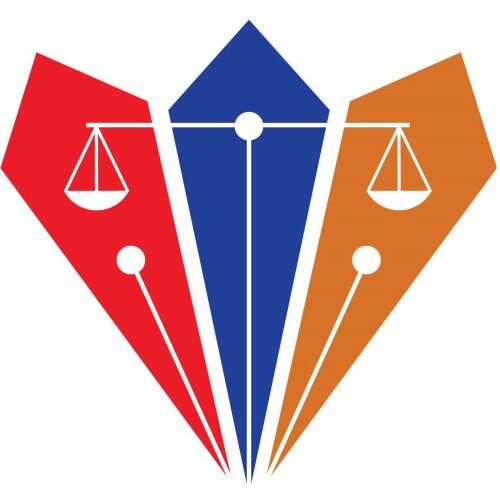Best Landlord & Tenant Lawyers in Dar es Salaam
Share your needs with us, get contacted by law firms.
Free. Takes 2 min.
Free Guide to Hiring a Real Estate Lawyer
List of the best lawyers in Dar es Salaam, Tanzania
About Landlord & Tenant Law in Dar es Salaam, Tanzania
Landlord and tenant law in Dar es Salaam, Tanzania covers a broad spectrum of issues pertaining to the rental of property. These laws outline the duties and rights of both parties involved in a tenant-landlord relationship, from the provision of habitable premises to rent payments and eviction procedures. It is common to have disagreements regarding property damage, rent, ownership, and lease agreements and as such, understanding these laws is vital for both landlords and tenants.
Why You May Need a Lawyer
Landlords and tenants may need legal help at different stages of the rental relationship. For instance, tenants may need a lawyer to help them negotiate terms in a lease, understand their rights under the law, or represent them in an eviction case. On the other hand, landlords may need legal help to deal with non-payment of rent, drafting of lease agreements, and handling regulatory issues, among others.
Local Laws Overview
In Tanzania, and specifically Dar es Salaam, laws governing landlord and tenant relationships are contained in the Rent Restriction Act, Landlord and Tenant (Business Premises) Act, and the Land Act. Key provisions touch on rent control, the rights and obligations of both landlords and tenants, and the procedure for handling disputes and eviction cases.
Frequently Asked Questions
1. Can I be evicted without notice in Dar es Salaam?
Under Tanzanian law, a tenant cannot be evicted without prior notice, unless in situations where the tenant poses a danger to the health and safety of others, or has caused excessive damage to the property.
2. How is rent determined?
Rent is mutually agreed upon by both parties. However, the Rent Restriction Act provides mechanisms to regulate excessive rent increases.
3. What happens when there's a lease violation?
If a lease agreement is violated, the offended party can take legal action. This could lead to financial penalties or termination of the lease.
4. What kind of maintenance is a landlord responsible for?
The landlord is responsible for maintaining the structural integrity of the property and ensuring that it's fit for occupation.
5. Are landlords allowed to enter rented premises at any time?
No, unless in cases of emergency. Landlords are expected to give reasonable notice before entering the premises.
6. How do I terminate a lease in Dar es Salaam?
A lease can be terminated by mutual agreement, upon its natural expiry, or due to violations. The process generally involves written notice.
7. Is there rent control in Tanzania?
Yes, the Rent Restriction Act provides for rent control to prevent exploitation of tenants.
8. Can a landlord increase rent arbitrarily?
No, landlords need to adhere to the provisions in the Rent Restriction Act, as well as the agreement in the lease.
9. How are tenant-landlord disputes resolved in Dar es Salaam?
Disputes can be resolved through alternative dispute resolution methods, or ultimately in court.
10. What protections do tenants have under Tanzanian law?
Tanzanian law offers various protections for tenants, such as the right to peaceful enjoyment of the property, protection against unfair eviction, and the right to habitable premises.
Additional Resources
Tanzania provides a range of resources to assist both landlords and tenants. The Rent Restriction Board and the Land Tribunal are key government bodies that handle tenant-landlord matters. In addition, legal aid services and NGOs offer support, particularly for disadvantaged or vulnerable tenants navigating housing disputes.
Next Steps
If you need legal advice relating to landlord-tenant matters, it may be beneficial to consult with a local attorney specializing in this field. They can help you understand your rights and obligations under Tanzanian law, advise you on dispute resolution mechanisms, or represent you in court proceedings if necessary.
Lawzana helps you find the best lawyers and law firms in Dar es Salaam through a curated and pre-screened list of qualified legal professionals. Our platform offers rankings and detailed profiles of attorneys and law firms, allowing you to compare based on practice areas, including Landlord & Tenant, experience, and client feedback.
Each profile includes a description of the firm's areas of practice, client reviews, team members and partners, year of establishment, spoken languages, office locations, contact information, social media presence, and any published articles or resources. Most firms on our platform speak English and are experienced in both local and international legal matters.
Get a quote from top-rated law firms in Dar es Salaam, Tanzania — quickly, securely, and without unnecessary hassle.
Disclaimer:
The information provided on this page is for general informational purposes only and does not constitute legal advice. While we strive to ensure the accuracy and relevance of the content, legal information may change over time, and interpretations of the law can vary. You should always consult with a qualified legal professional for advice specific to your situation.
We disclaim all liability for actions taken or not taken based on the content of this page. If you believe any information is incorrect or outdated, please contact us, and we will review and update it where appropriate.











